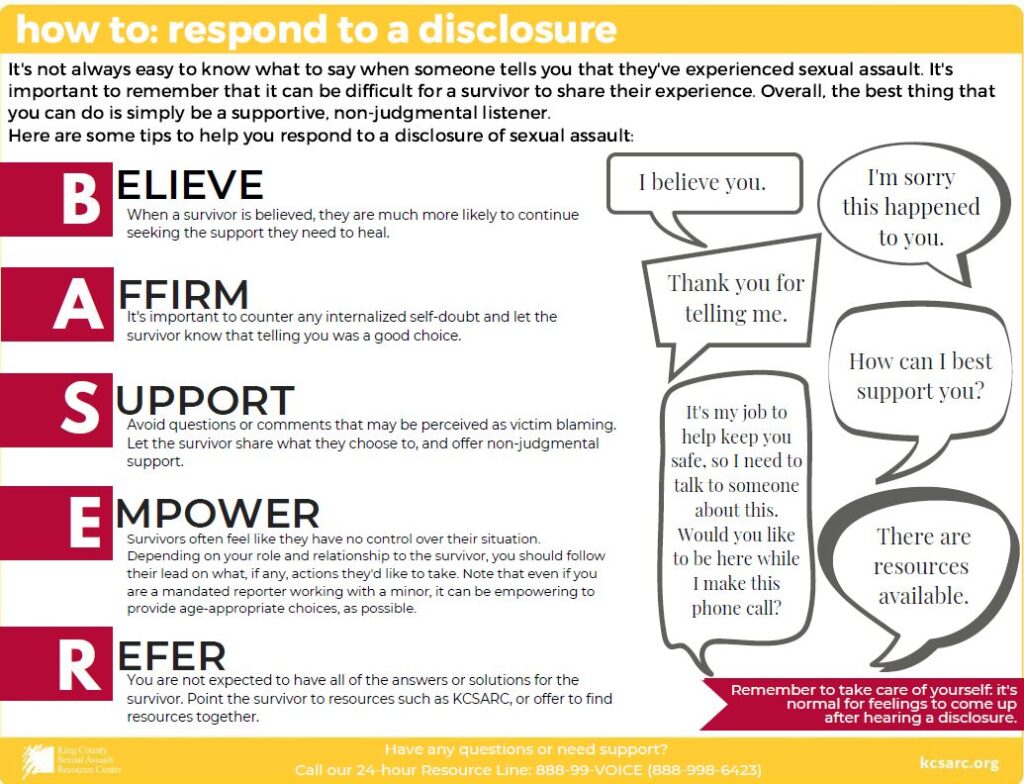Support for a friend
Finding support for someone you know
If someone tells you they were sexually assaulted or they are in a controlling and abusive relationship, remember that you might be the first person they have told. Your response helps determine whether they feel safe and supported telling others or seeking additional help. They might not know how to say it or how to sort out their feelings, but they know something is wrong.
Make an appointment
Confidential Survivor Advocates (CSA) are able to meet with students who are impacted directly or indirectly by sexual assault, domestic violence, stalking, and sexual harassment. Learning that a friend has been harmed can lead to feelings of anger, confusion, or hurt. You can make an appointment with a CSA who can give you a private space to discuss how to support your friend and take care of yourself in the process.
How to support a friend
It can be tough to know what to say when someone you care about tells you they’ve been sexually assaulted or in an abusive relationship. You might wonder why they don’t just report it or go to therapy. But every survivor is different, and they may have their own reasons for not reaching out to certain people or resources. There are ways you can still be supportive and offer them help for when they’re ready. The King County Sexual Assault Resource Center (KCSARC) has some helpful tips on how to support someone when they disclose. Learn more below:

To learn more about how to support a friend, you can find more resources on the King County Sexual Assault Resource Center (KCSARC) website.
